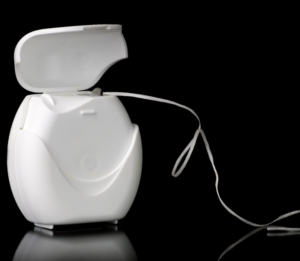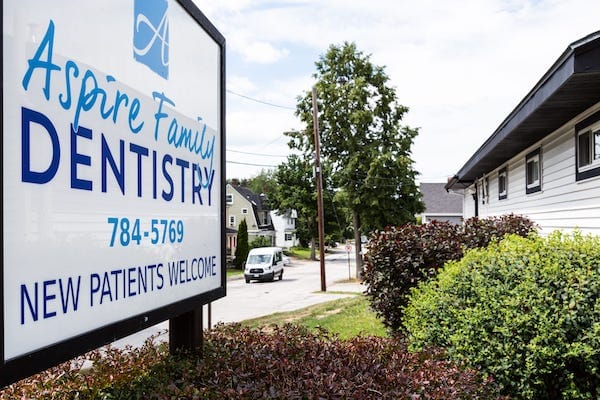What Causes Tooth Sensitivity?
We have all been there, excited to bite into an ice cream treat, or drinking our favorite blend of hot coffee before work, and then it hits. That sharp pain in the teeth because of a hot or cold food. The reason behind tooth sensitivity, specifically to temperature, lies in how our nerves work. As you may know, all over our body we have various nerve endings that register different feelings like hot/cold, pain, pressure, etc. In our teeth, these nerves are deep beneath the outer layers of the tooth. But as our teeth decay due to acidic or high-sugar foods, we lose the protective layer or enamel on our teeth. This can expose the nerves and register some painful responses when eating cold or hot foods. Additionally, our gums can begin to recede due to improper oral health habits. Combined with the loss of enamel, your teeth can be exposed to more pain when biting a popsicle or drinking some hot tea.
How To Prevent Enamel Loss & Receding Gums
There are two main ways you can protect your tooth enamel: how you brush, and what you eat. Highly acidic or sugary foods/beverages can quickly strip enamel off of your teeth. Coffee, soda, tomato sauce, and even fruit juice all have high acidity. When you eat or drink beverages that are sugary and acidic you want to make sure you wash them out of your mouth quickly. If you have ever spilled a sugary beverage, you know that it leaves a sticky residue. Similarly, this residue can bind to your teeth and eat away at them as you go about your day. Simply chewing sugar free gum and drinking water can remove left over food and beverages that stick to the outside of our teeth. But nothing replaces good brushing and flossing habits. Brushing 2-3 times per day and flossing once per day can remove left over food particles that are stuck your teeth. And of course, when possible, limit the foods and beverages that weaken our teeth.
Should I Use Special Toothpaste To Prevent Cold Sensitivity
You may see a bottle of toothpaste in the drugstore that says it is specifically made for tooth sensitivity, cavity prevention, whitening, or another similar claim. Truthfully, many toothpaste brands highlight one of the many things they do on the box. What you should really look for in a toothpaste brand is that it is approved by the ADA (American Dental Association). The ADA places a “seal of acceptance” on toothpaste brands that are recommended. Many toothpaste marketing companies will list one of many different claims on the box to simply a/b test what consumers are drawn to. In fact, many ADA recommended toothpastes do all of the aforementioned things from preventing tooth sensitivity, to decreasing tartar buildup, to preventing cavities.
Visit A Dentist in Lewiston Maine
Another great way to address any dental issues and prevent dental issues is by going to regular dental visits. Learn more about how the dentists in Lewiston Maine can help. Give us a call to set up an appointment or use our contact form!
Learn More About Cosmetic Dentistry:

Why Do Gums Bleed When You Floss?
Bleeding gums are a common sign that you might have gum disease or other oral issues. But that isn’t always the case. In fact, there

Does Going To The Dentist Fix Bad Breath?
Bad breath is a common concern for many people. It can be off putting to coworkers, friends, and other people in the vicinity if you
What Causes Cavities?
If there is one thing you do not want to hear at the dentist’s office, it is that you have a cavity that will need
What Happens At A Dental Cleaning
Ask any dentist in the country, you should be seeing a dentist for a regular checkup at least twice per year. In fact, almost every
How Do I Handle A Cracked Tooth
A cracked or chipped tooth is a common dental issue. It can be caused from anything from a sports injury to biting down on a
Do I Need A Tooth Extraction?
A tooth extraction is often the last resort for dentists. When at all possible, dentists look for ways to save a tooth either with dental


